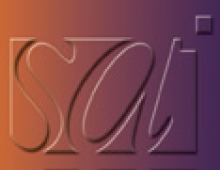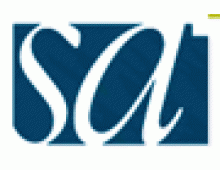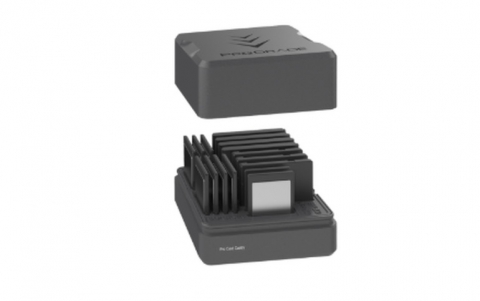
UDF file system developer toolkit for WinXP released by Software Architects
Software Architects, Inc. (SAI) announced today the release of SAI UDF Developer Toolkit for MS Windows XP. Version 2.0 is based on the world's first read/write UDF file system engine commercialized by SAI in 1997. The toolkit provides everything you need to format, read, write, update, and erase media using an OSTA compliant UDF file system. Developers of DVD, CD-RW, MO and HDD based storage applications can save development time and ensure compatibility with key industry standards by using this developer toolkit.
The toolkit supports all versions of UDF, including v1.0.2, 1.5, 2.0 and 2.0.1, including support for read time DVD video recording. Block addressable, packet writing and image mastering are supported. Options include device driver support for DVD-RAM, DVD-R/W, CD-R/W, DVD+R/W, MO and hard disk drives. The toolkit is ideal for applications developers creating video or audio editing, authoring and mastering products, as well as for set top box designers, Medical imaging systems manufacturers and telephone recording systems.
Two Versions, Two Methods of Integration
The Toolkit comes in two versions: the Application Level version and the System Level version. Developers that want complete control of all formatting and media functions from within their own application will use the Application Level Toolkit. Developers who prefer to have an on-line file system integrated with MS Explorer will use the System Level Toolkit. Custom functions and Device driver libraries are also available.
Key Components:
The Application Level Toolkit consists of the UDF file system engine and API. The API includes 99 calls available from the application to the engine, and 10 calls from the engine to the device driver level. The toolkit is written in C, using Microsoft's Visual Studio development environment.
The System Level Toolkit consists of a special UDF formatting library in the form of a .DLL or .LIB file that can be integrated into a third party application, and an on-line, ``drive letter access'' UDF file system driver integrated with MS Explorer(TM). Optional device drivers are available for various types of media, including: MO, DVD-RAM, DVD-R/W, DVD+R/W, CD-R/W and hard disk drives. Support for ATAPI, SCSI, FireWire and USB protocols are available.
Systems Supported:
Intel Pentium based PC running MS Windows(TM) NT service pack 6; Windows 2000 Professional or Windows XP Professional. 128 MBytes RAM required; recommend 256 MBytes RAM.
Compliant Key Industry Standards and Specifications
Both versions of the toolkit are compliant with the OSTA UDF Implementation Guideline. OSTA (Optical Storage Technology Association) publishes the UDF specification and implementation guidelines. UDF formats created by the toolkit in UDF v2.0.1 are also compliant with DVD Forum specifications for real time video file recording. Licensees can be confident that their products will produce industry compliant logical formats on discs.
Compatibility with Operating Systems
Discs formatted into UDF with the toolkit are read compatible with MS Windows Me, 2000 and XP UDF readers and Apple Mac OS 8.6, 9 and X.
Pricing and Availability
Basic Development Toolkit license is $12,500 per workstation. Extended support and distribution licenses available on request.
Two Versions, Two Methods of Integration
The Toolkit comes in two versions: the Application Level version and the System Level version. Developers that want complete control of all formatting and media functions from within their own application will use the Application Level Toolkit. Developers who prefer to have an on-line file system integrated with MS Explorer will use the System Level Toolkit. Custom functions and Device driver libraries are also available.
Key Components:
The Application Level Toolkit consists of the UDF file system engine and API. The API includes 99 calls available from the application to the engine, and 10 calls from the engine to the device driver level. The toolkit is written in C, using Microsoft's Visual Studio development environment.
The System Level Toolkit consists of a special UDF formatting library in the form of a .DLL or .LIB file that can be integrated into a third party application, and an on-line, ``drive letter access'' UDF file system driver integrated with MS Explorer(TM). Optional device drivers are available for various types of media, including: MO, DVD-RAM, DVD-R/W, DVD+R/W, CD-R/W and hard disk drives. Support for ATAPI, SCSI, FireWire and USB protocols are available.
Systems Supported:
Intel Pentium based PC running MS Windows(TM) NT service pack 6; Windows 2000 Professional or Windows XP Professional. 128 MBytes RAM required; recommend 256 MBytes RAM.
Compliant Key Industry Standards and Specifications
Both versions of the toolkit are compliant with the OSTA UDF Implementation Guideline. OSTA (Optical Storage Technology Association) publishes the UDF specification and implementation guidelines. UDF formats created by the toolkit in UDF v2.0.1 are also compliant with DVD Forum specifications for real time video file recording. Licensees can be confident that their products will produce industry compliant logical formats on discs.
Compatibility with Operating Systems
Discs formatted into UDF with the toolkit are read compatible with MS Windows Me, 2000 and XP UDF readers and Apple Mac OS 8.6, 9 and X.
Pricing and Availability
Basic Development Toolkit license is $12,500 per workstation. Extended support and distribution licenses available on request.
















